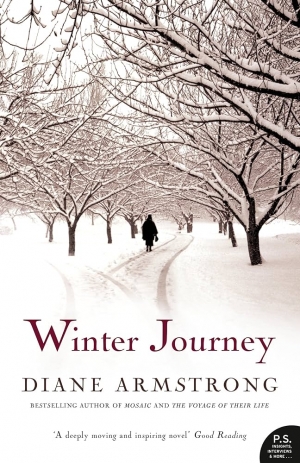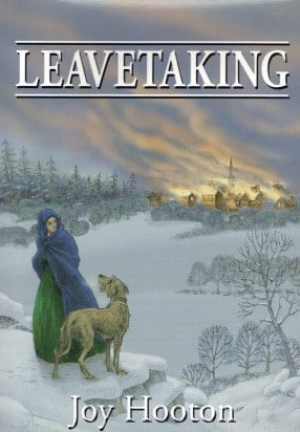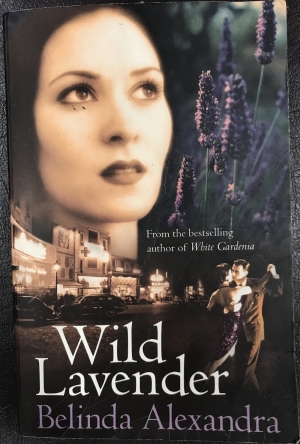Historical Fiction
A personal renaissance, with a raison d’ệtre of such significance that it shifts the reverie of the characters in this book into a dimension of former youthfulness and revitalises the possibilities that seem to vanish with age: On a Wing and a Prayer is about friendship, loyalty and respect in the lives of three ordinary people drawn together under extraordinary circumstances in a small country town in central New South Wales. It confounds the adage that once you have reached a certain stage in life there is no further use for you.
... (read more)Robert Phiddian reviews ‘The Resurrectionist’ by James Bradley
The mortality rate for individuals is always one, but for populations it varies from time to time and place to place. London is one of those cities where the mortality rate is high, though not because it has ever been, like the Gold Coast, a city to retire to. For centuries, young people have gone to London seeking riches, celebrity and opportunity. Some, like Dick Whittington, found the streets proverbially paved with gold, but others made their way promptly to the gutter. From the gutter to the grave is but a short step, but not the last one in London during the early days of modern anatomical science, as James Bradley’s new novel illustrates.
... (read more)How much do you care about sheep? I mean really care about sheep. Because The Ballad of Desmond Kale is up to its woolly neck in them. It’s an unusual and inspired variation on the classic Australian colonial novel of hunters for fortune, for identity and for redemption. The historical record is filled with accounts of early settlers grappling with the hostile and unpleasant environment. The battle to tame the distinctly un-European landscape has been a recurring theme in Australian literature ever since. As a consequence, the physical landscape has been mythologised. Here, the rhetoric goes, we might find ourselves. The bush and the outback are awarded a spiritual quality. If we can understand this, be at one with the space that was formerly so hostile to us, then maybe we can understand what it means to be Australian.
... (read more)Aviva Tuffield reviews ‘The Wing of Night’ by Brenda Walker
Perhaps it’s the Zeitgeist, but Brenda Walker is the third Australian woman this year, after Geraldine Brooks in March and Delia Falconer in The Lost Thoughts of Soldiers, to fix her imaginative sights on men’s experiences of war and its aftermath. Walker’s book, however, directs as much attention to the home front and to the women left behind.
... (read more)These are hostile times for literary fiction in Australia. New novels are well advised to don flak, not flap, jackets. And it’s not just a simple case of critics sniping from the sidelines, wanting their piece of the action. This is a full-blown civil war involving all the vested interests – publishers, editors, journalists, publicists and booksellers – not just writers and readers. The smarting adjectival arrows continue to find their targets. Current fiction is too dreamy, starchy, inconsequential, ingrown, belletristic, portentous. While our non-fiction writers have been doing time in South American jails and running the gauntlet of spy networks, our best novelists have been tending the lily-livered genres of historical fiction and fable. Many of them have been accused of skedaddling off to the library at a time when a confrontation with the forces of xenophobia, philistinism, fogeyism and greed is more than ever required. Novel-writing, in a word (and it’s one that has been flung around with a degree of passion recently), has become ‘gutless’ storytelling.
... (read more)Gillian Dooley reviews 'The Journal of Fletcher Christian: Together with the history of Henry Corkhill' by Peter Corris
Of all places on earth, Pitcairn Island must surely have the strangest history. Everyone knows about the mutiny on the Bounty in 1789 (not a bad year for uprisings) and about the settlement founded by the mutineers and their Tahitian consorts on this remote Pacific island. Now Peter Corris has created a fiction based on a distant family connection between Fletcher Christian and Corris himself, through his Manx ancestry.
... (read more)Michelle Griffin reviews ‘Winter Journey’ by Diane Armstrong
Diane Armstrong should have stuck to the facts. The many surprising particulars that illuminated her two fine histories of the Jewish refugee experience (Mosaic: A Chronicle of Five Generations, 1998, and The Voyage of Their Life, 1999) have been replaced, in her first novel, by clichés and banalities that turn to soap opera her account of an Australian forensic scientist unearthing the secrets of her own past.
... (read more)Alan Atkinson reviews ‘The Commonwealth of Thieves: The Sydney experiment by Tom Keneally
Pity the professional historian. It is hard to know where to turn these days to avoid being abused, even from the most unlikely sources. According to Andrew Riemer, writing lately in the Sydney Morning Herald, the main reason professional historians castigated Robert Hughes in 1988, when he published The Fatal Shore, was because he had ‘occupied their territory’. Is there any other professional group in Australia so childish, irresponsible, parasitical and useless as the professional historian? Judging from remarks like this, appearing weekly in the press over the last few years, apparently not. And why is it, at a time when the number of living professional historians probably outnumbers the total of their deceased predecessors since time began, we supposedly manage to work as a tiny clique? Someday an historian, maybe even a professional one, will explain this unlikely phenomenon. Allegations such as these are linked somehow with the overwhelming anti-intellectualism of early twenty-first-century Australia, but exactly why historians, among all the others, are hit so hard and so often is a puzzle.
... (read more)Gillian Dooley reviews ‘Leavetaking’ by Joy Hooton and ‘Temple of the Grail’ by Adriana Koulias
These two quite different historical novels, both by first-time novelists, reveal once again the many difficulties of that genre, no matter how much information the author has gathered. The publisher of Temple of the Grail has provided ample publicity material. Along with the usual media release, there is a two-page puff piece couched in the first person about how Adriana Koulias came to write and publish the book. Koulias is Brazilian by birth, from a Catholic family that moved to Australia when she was nine: ‘By the time I was eighteen I had come into contact with a cornucopia of religion and philosophy.’ Much of this lore has been fed into Temple of the Grail, which sets out, she says, ‘to show how religious zeal, carried to extremes, eventually leads to error’. In addition to this promotional material, the book itself contains a foreword by David Wansbrough praising the book to the skies:
... (read more)Judith Armstrong reviews ‘Wild Lavender’ by Belinda Alexandra
Belinda Alexandra’s first novel, The White Gardenia (2002), was a ‘word of mouth best seller’. It may not have been picked up by certain critics, but it was nevertheless favoured by the book-buying public. Its subject was exotic – the fortunes of the daughter of a White Russian refugee family in Harbin and Shanghai – but the Mills & Boon cover was a bit of a worry. Now Wild Lavender appears, the second instalment of Alexandra’s two-book contract.
... (read more)









